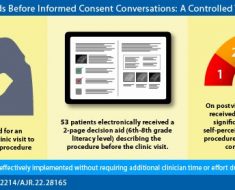- Experts say a “Dry January” resolution may be more difficult to achieve this year due to COVID-19 limitations.
- The lack of social interaction, stress of the pandemic, and fewer health services are some factors that could make it harder.
- It might be easier for some people to try a shorter goal rather than a whole month.
- Experts recommend other strategies such as avoiding situations where you might be tempted to drink and remembering that cravings are only temporary feelings.
After a year like 2020, having a “Dry January” may be more challenging than ever before.
Abstaining from alcohol and drugs for a month is usually a popular New Year’s resolution, thus the term “Dry January.”
Starting a new year is a natural time for renewal, especially after pushing the limits of consumption over the holidays.
However, this year may be more difficult to achieve such goals due to COVID-19 and its accompanying isolation and economic difficulties, as well as the typical winter letdown coming from shorter days and colder weather.
“Statistics show that overdose deaths were higher this year than any previous year and alcohol drinking has increased,” Dr. Joseph R. Volpicelli, executive director of Institute of Addiction Medicine in Pennsylvania, told Healthline.
Volpicelli said that in one recent
“There are several reasons why this has been a tough year,” he said. “The emotional and economic stress of the COVID pandemic has led to increases in anxiety and depression, which has led some people to find relief in drugs or drinking.”
“The increased social isolation has taken away a vital buffer to cope with increased craving, and for those fortunate enough to be able to work from home, there have been fewer social constraints on drug use,” he explained.
“As we begin the new year, many people have become more comfortable with increased drinking levels and may not realize drinking has become a problem,” he added.
Lack of health services
Financial difficulties have also made it tough for some people to keep health insurance, noted Meghan Marcum, the chief psychologist at A Better Life Recovery in San Juan Capistrano, California.
“This has created a greater need for community mental health and there have not been enough resources to provide the services necessary for many people who are seeking treatment,” Marcum told Healthline.
“For others,” she said, “the thought of seeking treatment in the era of a global pandemic has left them hesitant to reach out, and many continue to struggle without the support they need.”
“Isolation is problematic for all of us, and for those with substance use issues it represents a serious risk factor,” she added.
Less social interaction
The lack of healthy outlets for people to counteract the negativity and the effects of the past year have also become more problematic, Kate Truitt, a licensed clinical psychologist in Pasadena, California, told Healthline.
“Dry January brings its own complications, especially for individuals who have been utilizing substances as a primary coping skill,” Truitt said.
“Access to community centers, gyms, places of worship, etc. — our usual social gathering spaces where we could commune and connect without relying on substances — are still closed,” she added. “Dry January means making healthy yet difficult behavioral choices in the face of a very chronically stressful time.”
“Our brains love an easy button for stress relief and substances certainly provide easy relief, especially if substances are readily available in our home environment,” she said.
Which is why she said the first thing people should do is remove those substances from their home.
“Our brains love to encode and rely on patterns of past behaviors to direct our present moment experiences,” Truitt said. “Simply walking past a location where regular substance abuse has been part of daily life may trigger the brain into a psychological state of craving. This is even more true if the substances have been used as a tool for emotional management.”
“Removing the substances, effectively out of sight to out of mind, and proactively creating new patterns of behaviors during the times when substance use previously occurred, is critical for enhancing success in Dry January,” she explained.
Some tips on how to succeed
Instead of trying to quit one month at a time, Boris MacKey, an addiction therapist and editor-in-chief of the addiction support website Rehab 4 Addiction, recommends starting with shorter term goals.
“For heavy drinkers, then one well documented criticism of Dry January is that it is an unachievable aim,” MacKey told Healthline. “It’s far more effective to advise these people to instead aim to stop drinking for several days.”
MacKey also said the process takes daily maintenance.
“With someone who’s been in recovery from alcohol addiction for more than 20 years, I can tell you if a person is attempting Dry January, make sure to do something every day to reconfirm that commitment,” he said.
“In recovery circles, we read the original Alcoholics Anonymous 12 steps, written by a man named Bill W. back in the 1930s. This helps us maintain our commitment to our recovery,” MacKey explained.
Lori Ryland, PhD, the chief clinical officer at Pinnacle Treatment Centers, offers six strategies for people trying to avoid temptation and have a Dry January:
Source: Read Full Article





